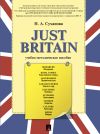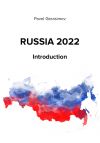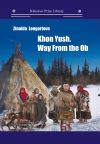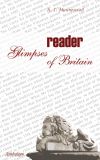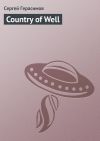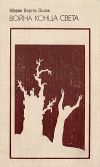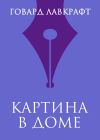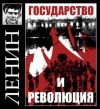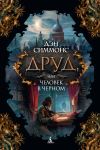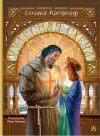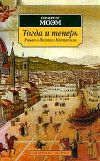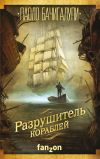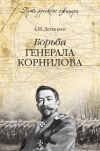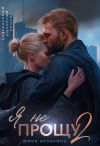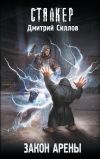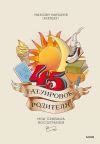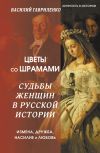Текст книги "Английский язык для студентов сельскохозяйственных вузов"
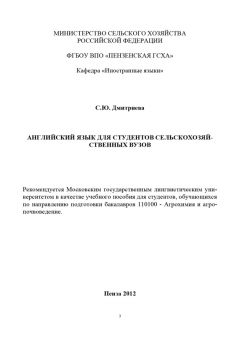
Автор книги: Светлана Дмитриева
Жанр: Учебная литература, Детские книги
сообщить о неприемлемом содержимом
Текущая страница: 4 (всего у книги 14 страниц) [доступный отрывок для чтения: 5 страниц]
LESSON 2
Task 1. Answer the questions.
1) What is your home town?
2) Where is it situated?
3) When was it founded?
4) What street do you live in?
5) Do you live downtown or in the suburbs?
6) What places of interest are there in your town?
7) What is your favourite place in your town? Why?
8) What industries are developed in the town?
10) How many institutes are there in your town? What are they?
 Task 2. Memorize the following words and phrases.
Task 2. Memorize the following words and phrases.
1. Excuse [iks΄kju:z] me, please. – Извините, пожалуйста.
2. Excuse my disturbing [dis΄tə:biŋ] you. – Извините за беспокойство.
3. Yes, what is it? – Да, в чём дело?
4. What can I do for you? – Чем могу помочь?
5. Just a minute, please!/Wait a minute, please! – Одну минутку!
6. Where is …? – Где находится …?
7. Am I right for? – Я правильно иду …?
8. Could you tell me the way to …? – Вы не могли бы подсказать дорогу …
9. It is just round [raund] the corner [΄ko: nə]. – Это как раз за углом.
10. It will take you to … – Он довезёт Вас до …
11. Go straight [streit]. – Идите прямо.
12. It will take you 15 minutes to go there. – Вы дойдете туда за 15 мин.
13. Go along [ə΄loŋ] … – Идите вдоль …
14. railway [΄reilwei] station [΄stei∫ən] – ж/д станция
15. to go by … – доехать на …
16. heavy [΄hevi] traffic [΄træfik] – сильное движение транспорта
17. traffic lights [laits] – светофор
18. to cross [kros] – перейти (улицу, дорогу)
19. to take a bus ( trolleybus) number … – сесть на автобус ( троллейбус ) …
20. to change [tʃeinʤ] for … – пересесть на …
21. in the opposite [΄opəzit] direction [di΄rek∫ən] – в противоположном направлении
22. stranger [΄streinʤə] – приезжий ( не местный житель )
23. to be lost – заблудиться
24. to arrive at smb.’s destination – добраться до места назначения
25. to show smb. round the city – показать кому-либо город
26. to turn [tə:n] left ( right ) – повернуть налево ( направо )
27. sign [sain] – сигнал, знак, вывеска
28. rush [r٨∫] hour [΄auə] – час пик
29. to run out of petrol – нет бензина
30. traffic jams – дорожные «пробки»
31. filling-station (petrol station BE) – автозаправочная станция
32. to be connected [kə΄nektid] with … – быть связанным с …
33. century [΄sentʃəri] – век, столетие
34. machine-building [mə΄∫i:n΄bildiŋ] – машиностроение
35. chemical [΄kemikəl] – engineering [enʤi΄niəriŋ] – химическое машиностроение
36. civil [΄sivil] -engineering – гражданское строительство
37. to produce [prə΄dju:s] – производить
38. railway [΄reilwei] junction [΄ʤ٨ŋk∫ən] – ж/д узел
39. fountain [΄fauntin] – фонтан
40. circus [΄sə:kəs] – цирк
Names of the Months
January [΄ʤænjuəri], February [΄februəri], March [ma:tʃ], April [΄eiprəl], May [mei], June [ʤu:n], July [ʤu΄lai], August [΄o:gəst], September [səp΄tembə], October [ɒk΄təubə], November [nəu΄vembə], December [di΄sembə].
Word-building
Task 1. a) Complete the following with the correct suffix to make adjectives. Use: – al; – ic (-tific).
History – historical – historic
Culture – cultural
Science, education, industry, monument, agriculture, profession.
Task 2. Make up sentences about your town using the adj. (Task 1).
 Task 3. In groups, discuss the questions:
Task 3. In groups, discuss the questions:
What is …
1) … the most beautiful place in your town?
2) … the longest street?
3) … the largest building?
4) … the most popular place for young people?
5) … the most interesting museum?
Use the phrases:
– I think … – Я думаю …
– To my mind … – По-моему …
– Nothing of the kind. – Ничего подобного!
– Why do you think so? – Почему Вы так думаете?
– I am of the same ( another) opinion. – Я того же ( другого) мнения.
– Maybe. – Возможно. ( Может быть ).
Task 4. Translate the sentences.
1) My brother showed me round Moscow. 2) The railway station is not far from here. 3) In the centre of Penza she changes for trolleybus number 7. 4) The traffic is heavy during rush hours. 5) We were lost in Samara. 6) Young people like to walk along Fountain square. 7) This city was founded by Catherine II. 8) If you go straight along two blocks up to the traffic lights you will see the building of the Drama Theatre on your left. 9) Where is the bus stop? 10) Am I right for the post-office? 11) Excuse me, please, where is the nearest bank? 12) I asked the taxi driver to hurry because I was late for an appointment.
 Task 5. In pairs, act out and translate the dialogues.
Task 5. In pairs, act out and translate the dialogues.
a) – Excuse me, please.
– Yes, what can I do for you?
– Could you tell me the way to the agricultural academy?
– Certainly. It’s easy. Take a bus № 9 or a taxi-bus number 9 or 93. It will take you right to the academy.
– How long will it take me to get there?
– Let me see … Maybe half an hour or so, if the traffic is not heavy.
– Thank you very much.
– You’re welcome.
b) – Excuse me.
– Yes? What’s the matter?
– Am I right for the Central Park?
– No, it is in the opposite direction.
– Thanks a lot.
c) – Does this bus go downtown?
– No, it doesn’t. You have to change for number 13. It’ll take you right to the centre.
– Where is the bus stop?
– It is in front of you, across the street.
– I see, thank you.
 Task 6. a) In pairs, act out a conversation.
Task 6. a) In pairs, act out a conversation.
Student A: Ask the way to a certain place in your town.
Student B: Be ready to give directions.
b) Act out a conversation. You want a taxi to take you to different places. Include different forms of polite requests in your conversation:

Text 1
My Home Town
I was born in Penza. It is one of the oldest and most beautiful Russian towns. It was founded in 1663 as a fort on the south-eastern border of the state. The place was well-chosen from the strategic point of view: from the north it was reliably defended by Cherkassky fort, in the south there were plenty of saucer-like lakes (now it is called Yuzhnaya Polyana), from the west it was defended by dense forests.

Penza is situated on the Sura river. The word “sur” means “ finger”. Long ago before it became a castle-town this “finger” showed the ancient people a place to settle down.
Penza has a rich history. It is connected with the life and activity of quite a number famous people: M. Lermontov, A. Kuprin, N. Burdenko, V. Belinsky, P. Yablochkov, S. Razin, Y. Pugachov and others. M. Lermontov… His grandmother’s country estate, nowadays, is the state museum Tarkhany, one of the greatest memorial parks in our country, a peculiar cultural corner, which links the previous centuries with the present day.

Now Penza is a big cultural and industrial centre. Its population is over 600 000 people. There are several big plants which produce chemical equipment, electronic equipment, diesel engines, compressors, bicycles, clocks and watches, paper, medicines and other necessary things.
Agriculture in Penza region is on the upsurge now. Our farmers introduce new techniques and machinery, develop high-yielding and disease-resisting varieties, breed highly-productive breeds of farm animals in order to make our farming as profitable as possible.
In Penza there are many educational establishments. The most important institutions of higher education are: Penza Technical University, Penza State Pedagogical University, Penza State Civil Engineering University and Penza State Agricultural Academy.
Whatever the season, Penza is always beautiful. Large squares, green streets, beautiful parks, Fountain square, a spacious zoo – everything attracts visitors’ attention. You can see a great variety of picturesque houses – from old-fashioned buildings of the 19th century to modern constructions of original architecture.
Visitors often go to the circus, to the Drama Theatre, to museums. People are proud of their city and try to make it cleaner and healthier.
Exercise 1. Read and translate the text.
Exercise 2. Answer the questions:
a) What sights of Penza are mentioned in the text? Have you seen all of them?
b) Is there anything you can add?
Exercise 3. Find English equivalents for the following words and word combinations:
родной, родился, юго-восточная граница, палец, древний народ, население, поместье, предприятия, оборудование, лекарства, продукция, на подъёме, высокоурожайные, стойкие к болезням, породы, не зависимо от сезона, живописный.
Exercise 4. Arrange the information of the text and complete the table.

 Exercise 5. Work as a guide and show your friend round your city.
Exercise 5. Work as a guide and show your friend round your city.
Use the following expressions: – I’ d like to welcome you to …
– Let me start with the history.
– You can see …
– It is dedicated to … ( Он посвящен…)
– It’s interesting to know that …
– Now we are …
– It is worth seeing ( visiting ).
 Exercise 6. Make a report about your native place according to the plan.
Exercise 6. Make a report about your native place according to the plan.
Plan
I Name
II Geographical Position
III Population
IV Industry
V Agriculture
VI Education
VII Interesting Places
VIII Famous People

WHAT SEASON IS IT NOW?
 Task 1. In pairs, complete the dialogue.
Task 1. In pairs, complete the dialogue.
– What is your favourite season?
– As for me, I like autumn best of all.
– But why?!
– I don’t know, but it brings me in a good mood. And what about you?
– …
Task 2. Compare the words. Make up sentences.
Wind – windy It is windy in March.
Frost – frosty It is … in …
Sun – sunny It is … in …
Rain – rainy It is … in …
Fog – foggy It is … in …
Snow – snowy It is … in …
Task 3. Make up a logical chain.
Model: winter – spring – summer – autumn
a) flower, seed, leaf, fruit
b) cool, hot, warm, cold
c) ocean, river, stream, sea, pool
d) evening, night, daytime, morning
e) to harvest, to plough, to sow, to water
 Task 4. Find out when your groupmates’ birthdays are.
Task 4. Find out when your groupmates’ birthdays are.
Use: My birthday is on the … of …
Task 5. Finish up the sentences.
1) The longest day is on the … of …
2) The shortest day is on the … of …
3) The coldest month is …
4) The shortest month is …
5) July is … than …
6) March is as long as …
7) In autumn leaves are …
8) It is … in November.
 Task 6. Make up a list of things you can do in good weather and things you can do in bad weather.
Task 6. Make up a list of things you can do in good weather and things you can do in bad weather.

 Task 7. a) In pairs, discuss today’s weather.
Task 7. a) In pairs, discuss today’s weather.
Use the words: temperature, degree, above (below) zero, the sun, to shine, to go for a walk, an umbrella, to put on, a warm coat, to need, a typical winter (autumn, spring, summer) day, the wind, fine, cold, hot, warm, frosty, stuffy.
b) Have a conversation suggesting different things to do when the weather is good or bad.
Example: – Oh, no! It’s raining again. What are you going to do?
– I think I’ll go to a museum or a gallery.
– Which is your favourite museum in Penza?
– I enjoy visiting Penza Picture Gallery. There is a peaceful atmosphere there and lots of beautiful pictures.
 Task 8. Make up a weather forecast for the next day.
Task 8. Make up a weather forecast for the next day.
Use: According to the local weather forecast chart the weather for tomorrow is expected to be … In any weather it is worth visiting Penza Picture Gallery!
Text 2
Penza Picture Gallery
Penza Picture Gallery was founded in 1892 by the well-known Russian painter Konstantin Savitsky. It is the main museum of the town. There are about 15 large and small halls in the museum, which contain more than 7 thousand exhibits. These exhibits include a great number of paintings and drawings, a lot of sculptures, different things made of glass, bronze and gold, as well as documents, manuscripts and photographs.
The museum is rich in paintings by Russian and foreign masters of different generations.
Some of the halls are devoted to painters who lived and worked in Penza: Savitsky, Sorokopudov and others. The exhibits of other halls illustrate the development of arts in Western Europe. A lot of visitors come to the gallery every day to look at the gems of Russian and world art. The museum organizes lectures for its guests, meetings with modern artists, holds concerts of classical music.

We can admire masterpieces by Polenov, Levitan, Savrasov, Shishkin, Repin, Perov, Aivazovsky and many others.
Savitsky was the founder of the picture gallery in Penza. He did a lot for the museum. He opened an art school in Penza, he bought a great number of exhibits for the museum. Moreover, he was a very talented artist. The museum has a special hall devoted to his life and work. There are a lot of photographs on the walls, many books, albums, magazines of that time. On the table you can see many letters. Nowadays our picture gallery is large and rich and attracts many visitors.
well-known– хорошо известный
exhibit – экспонат
made of glass – изготовленный из стекла
devoted to … – посвящённый
art – искусство
gems – жемчужины
Exercise 1. Read and translate the text.
Exercise 2. Divide the text into several logical parts and define their topics.
Use: I think this text should be divided into 2, 3, 4 … logical parts. The first ( second, third …) one is about … ( describes … deals with …).
Exercise 3. These words sound the same as some Russian words. Check in your dictionary whether their meanings are the same.
A gallery, an artist, a sculpture, a museum, a hall, a meeting, to illustrate, a concert, a document, special, an album, a magazine, a visitor, interesting, production, a figure, data, a project.
Exercise 4. Choose the correct variant.
1) Penza Picture Gallery was founded in ( 1982, the 19th century, the last century).
2) There are ( fewer than 7000 exhibits, more than 7000 exhibits, 7000 exhibits) in the gallery.
3) You can see a lot of ( paintings, sculptures, albums, flowers, maps, books)
there.
4) The museum is rich in works by ( Savitsky, Repin, Savrasov, Perov, Levitan,
Sorokopudov, Vasnetsov ).
5) ( Savrasov, Perov, Levitan, Sorokopudov) lived and worked in Penza.
6) One part of the gallery is devoted to ( the life of some writers from Penza, Savitsky’s life, the history of Penza ).
7) People come here to enjoy ( paintings, sculptures, music, films, drama plays, lectures about art ).
 Exercise 5. Describe a museum in your place.
Exercise 5. Describe a museum in your place.
Text 3
My Village
I am a student of Penza agricultural academy. I live in the students’ hostel. But my parents live in a village not far from the city. The village is not very big. People are mostly engaged in vegetable-growing, because the soil is good for onions, cucumbers, carrots. Some of the land is under pastures. Almost every family has one or several cows. My mother breeds chickens and rabbits. This business brings a good profit.
The roads in the village are in bad condition, except Central street. In the centre of the village there is a school and a library. Not far from them you can see a new building. It is a local club. It is large and nice. We often come here to meet friends, to watch films and to dance. As for me I am fond of the amateur theatre there.
In the 90-s many people of the village were leaving for Penza. But now many things are changing here. Young families are beginning to build houses, to grow crops, to breed animals. As for me, I don’t see my future without the place where I was born.
Exercise 1. Scan the text.
Exercise 2. Find information about the advantages and disadvantages of living in a village. Answer the question: “Why do people leave their native place?”
Use: To my mind … – По-моему …
City Life
Some people believe that city life is much more exciting than life in the countryside. A lot of people in a big bustling city seem to forget that the quiet life of the country even exists. People who live in rural areas, on the other hand, would probably have a lot of trouble dealing with the fast pace of the city. There are some advantages that attract people to cities. The first thing is modern conveniences in houses and flats. They make life much easier and more comfortable. The second thing is a wide variety of jobs in cities. The third thing is entertainment: cinemas, theatres, museums, restaurants, concerts etc. you will never feel bored there.

Living in the country
A major difference between living in the city and living in the country is the air. Merely breathing the fresh, clean country air immediately makes you feel really alive. It is wonderful to walk in an open country meadow. The sun is bright, not a single cloud in the sky. The grass is thick and green. Everything looks so beautiful!
The other thing is country life is safer.

Task 1. Scan the texts.
Task 2. On the basis of the texts write a “for and against” essay.
Writing a ‘for and against’ essay
Tip
When we write a ‘for and against’ essay, we usually divide it into four paragraphs. In the first paragraph we present the topic without giving our opinion. In the main body we present the points for and against in separate paragraphs, supporting our arguments with justifications and/or examples. In the last paragraph we present a balanced summary of the topic and/or give our opinion. To present and join our points we use linking words/phrases (e.g. first, to begin with, however, moreover, etc.) to give our opinion we can use opinion words (I think, I believe, In my opinion, To my mind, etc.)
 Задания на аудирование
Задания на аудирование
Text “The History of Moscow”
a) Перед прослушиванием текста познакомьтесь со словами:
estate – поместье
to be walled – быть обнесенной стенами
fortress – крепость
trade route – торговый путь
invasion – вторжение
to be rebuilt – быть построенной заново
b) Прослушайте текст два раза и ответьте на вопросы:
1) Whose estate was Moscow in the 12th century?
2) When was Moscow walled?
3) What was the reason for its economic and political development?
4) How many settlements were there in Moscow in the 16th century?
5) Why was it rebuilt?
c) Вставьте недостающие слова по смыслу.
As far back as the 12th century Moscow was known as … of Yuri Dolgoruky. It was a fortress on the … of the Moskva-river. Moscow had rather … geographical … The town was divided into 150 … In the 18th century … moved the capital to … but Moscow continued to … In 1812 the largest part of Moscow was … by … But it was soon …
For help: bank, fire, develop, estate, favourable, Peter the Great, destroyed, rebuilt, position, districts, Saint-Petersburg.
d) Передайте основные факты, изложенные в тексте.
 Writing letters
Writing letters
Письма бывают личные и деловые. Для обоих типов существует шаблон, которого необходимо придерживаться. Приведённая ниже модель состоит из адреса отправителя ( the writer’s address ), приветствия адресату ( the salutation ), основной части письма ( the body of the letter ), заключительной фразы ( the closing word) и подписи автора письма ( the writer’s signature ). Заключительная фраза чаще всего звучит как:
Yours faithfully; или: Sincerely yours ( Искренне Ваш)
Example
Penza 440011RussiaOctober 1, 2004
Dear Helen, Thank you for the wonderful weekend! I had such a nice time with you and your family. Next time you are in Penza you must visit me. I hope to show you round my hometown.
My best regards to your parents.
Sincerely, yours,Mary
Model letter

 Write a letter to a friend who lives in another town and invite him (her) to your place. Describe some interesting places worth seeing.
Write a letter to a friend who lives in another town and invite him (her) to your place. Describe some interesting places worth seeing.
PHONETICS
Чтение буквосочетаний: “kn”, “wh”, “wr”, “tion”, “bt”, “gn”, “qu”

Exercise 1. Read the words correctly.
a) knit, knitting, know, knew, known, knee, knight, knife, knives, knowledge.
b) where, why, whereas, what, whatever, wheel, who, whole, whom, whose, where, whenever, whisky.
c) wreath, wrath, write, written, wrote, wrinkle, writs, writer.
d) condition, constitution, dictation, station, alteration, cultivation, demonstration, action, reaction, perfection, protection, consumption, generation, friction, fiction, irrigation, examination, collection, collections.
e) doubt, debt, subtle, doubting, debtor.
f) design, sign, foreign, reign, designer, gnat, foreigner.
g) quite, quote, equal, question, request, liquid, squirrel, square, acquire, require, requirement, equip, equipment, frequent, aquatint, quarter.
GRAMMAR
NUMERALS
Числительные
Числительные, обозначающие количество людей, животных, предметов и т. д., называются количественными. Числительные, которые обозначают порядок предметов или место, которое они занимают в ряду, называются порядковыми. Существительное, определяемое порядковым числительным, употребляется с определённым артиклем. В некоторых случаях перед порядковым числительным может стоять неопределённый артикль: в этом случае числительное приобретает значение другой, ещё один.
E.g. We send him a second telegram. – Мы отправили ему еще одну телеграмму.

40 – forty, 50 – fifty
100 – a hundred, one hundred, 300 – three hundred
1000 – a thousand, one thousand
5000 – five thousand
5067 – five thousand and sixty-seven
1 000 000 – a million, one million
Compare: two hundred workers – двести рабочих;
hundreds of workers – сотни рабочих
FRACTIONS AND DECIMALS
Дроби (обыкновенные и десятичные)
½ – a ( one) half; 1/3 – one third; 2/3 – two thirds; ¾ – three quarters; 1 1/3 – one and a third, 0.1 – nought point one (or: point one), 9. 305 – nine point three nought five.
DATES
1900 – nineteen hundred; 1907 – nineteen o seven; 1965 – nineteen sixty five May 9, 1945 – May the ninth, nineteen forty-five; in 2000 – in two thousand.
TELEPHONE NUMBERS
44-53-79 – double four, five, three, seven, nine.
Exercise 1. Read correctly.
a) 23; 223, 4 589; 49; 90; 557; 10 089; 129 011; 351; 500; 12; 30; 56; 1 100 299.
b) ½; 13 1/3; 5/6; 10/12; ¼; 0.1; 1.4; 3.68; 0.199; ¾; 8 3/5.
c) Dates: 1128; 1991; 1985; 2 000; 2 002; 1910; 1861; 1945; 1812; 1999, 2 004.
Exercise 2. Read and translate the sentences paying attention to the numerals.
a) My family had 5 cows.
b) She was born in 1985.
c) ¾ of the land area is water.
d) The 2nd semester will be shorter than the 1st one.
e) The population of Great Britain is 57 000 000 people.
f) We want 3 ½ kilograms of sugar.
g) 1. 033 grams of the substance is left after the experiment.
h) This festival took place in 2007.
i) The writer’s 98th birthday is this year.
j) His birthday is on the 29th of April.
k) How much is it? – 19 783 roubles.
l) Hundreds of people were ready to support their leader.
m) He lives in house number 15, flat number 133.
n) 1 2/3 plus 1/3 is 2.
o) Our farmers rear about 2 000 cattle, 5 000 pigs and lots of chickens.
p) There are 28 students in my group, 14 of them are girls.
q) The 1st exam is mathematics, the 2nd one is chemistry.
r) March is the 3rd month of the year and the 1st spring month.
s) The total area of Great Britain is 144 100 square km.
Exercise 3. Translate into English.
a) 9 мая 1945 года; 23 февраля 1917 года; 12 сентября 1963 года; к 31 января 1972 года; 29 марта 1965 года; 14 апреля 1963 года; 27 декабря 1991 года.
b) 28 км; 179 тыс. рублей; 20 млн. людей; 8 750 книг; 30 часов; ¾ пути.
c) ½ пути; 0. 22 грамма; 90 % курсовой работы.
ADJECTIVES AND ADVERBS
Прилагательные и наречия
Прилагательное – это часть речи, обозначающее свойства и признаки предметов, явлений и т. д. Имя прилагательное отвечает на вопрос: какой? В предложении прилагательное может быть определением и частью сказуемого.
E.g. It was early spring. (Была ранняя весна).
The weather was cold. (Погода стояла холодная).
Прилагательные в английском языке не изменяются ни по падежам, ни по числам, но они имеют степени сравнения.
Иногда возникают трудности при переводе «цепочки» прилагательных. Здесь нужно учитывать вид прилагательных, а именно, они могут носить объективный или субъективный характер. По-другому их называют fact adjectives и opinion adjectives. Сравните: large, new, wooden, round ( дают объективную информацию: возраст, размер, цвет и т. д. ); clever, nice, beautiful ( выражают чьё-то мнение, которое необязательно совпадает с Вашим).
Согласно правилу, opinion adjectives ставятся перед fact adjectives.
E.g. a beautiful young lady
a delicious crab salad
Иногда fact adjectives идут друг за другом. В этом случае порядок их должен быть следующим:
1) how big? → 2) how old? → 3) what color? → 4) where from? → 5) what is made of?
E.g. an old Russian song; a new white Indian cotton blouse
Exercise 1. Put the adjectives in brackets in the correct position.
E.g. a beautiful table ( wooden, round) – a beautiful round wooden table
1) an unusual ring ( gold)
2) an old lady ( kind)
3) a modern house ( attractive)
4) black gloves ( leather)
5) an American film ( old)
6) a large nose ( red)
7) a sunny day ( lovely)
8) an old avenue ( long)
9) a big cat ( fat/black)
10) a red car ( old/little)
11) a little village ( old/lovely)
Наречие
Наречие – это часть речи, которая характеризует действие и отвечает на вопросы: Как? Куда? и т. д. Наречие в английском языке представляет собой неоднородный класс слов. Одни из них – простые слова (here, well), другие образуются с помощью суффикса -ly ( slowly, badly, naturally ), третьи состоят из двух основ ( nowhere, downstairs ), четвёртые образуют целые словосочетания ( first of all, in the long run ). В предложении наречие выполняет функцию обстоятельства. E.g. We know the subject well.
DEGREES OF COMPARISON
Степени сравнения

Перед прилагательными в превосходной степени ставится определённый артикль the. E.g. the biggest room, the most important event, the best student.
Сравнительные конструкции
… than … ( чем)
the … the … ( чем … тем …)
as … as … ( так (ой) же, как и …)
not so … as … ( не так(ой) … как …)
much … than … (гораздо)
Exercise 2. Compare the means of transport.
1

2

Exercise 3. Put the adjectives and adverbs in the proper form. Sometimes two variants are possible.
1) Moscow is ( big) than Samara. 2) The Nile is ( long) river on the Earth. 3) Rose is one of ( beautiful) flowers. 4) She speaks English ( well) than you. 5) Yesterday the weather was ( bad) than now. 6) This is ( interesting) book in this library. 7) I get up ( early) than my brother. 8) It takes me ( little) than 15 minutes to get to my office. 9) Mary is ( good) student in our group. 10) This truck is ( heavy) than that one.11) Today it is ( cold) than yesterday. 12) Winter is ( cold) season of the year. 13) Baseball and football are ( popular) sports in America. 14) Potato grows ( well) in humid zones than in arid areas.
Exercise 4. Make up sentences matching parts from column A to column B.

Remember: the most + adjective = самый …
most + adjective = очень …
most + noun = большинство …
much + comparative degree ( bigger, more interesting )= намного
Exercise 5. Translate the sentences.
1) This is the most interesting book.
2) The book you gave me was most interesting.
3) Most people like music.
4) Joe has got the most beautiful garden in our town.
5) This task was much more difficult than that one.
6) It was most generous of you to help me.
7) It is the most expensive dress in the shop.
8) My house is much farther from the station than yours.
9) To my mind Baikal is the most beautiful lake.
10) Most of the students in our group have computers.
11) Most of the equipment on the farm is out of order.
12) The Fountain square is the busiest and most beautiful place in our town.
13) Most city transport is concentrated in the city centre and near the main railway station.
14) Chemistry is much more interesting for me than other subjects.
Exercise 6. Change the sentences after the model.
Model 1: I am 18. My brother is 18 too. We are twins. – I am as young as my brother.
1) She is clever. Her friend is clever too.
2) My house is big. My friend’s house is big too.
3) New York is a famous city. London is a famous city too.
4) You speak English well. Ann speaks English well too.
5) I like flowers very much. My mother likes flowers too.
Model 2: My cat is fatter than yours. – Your cat is not so fat as mine.
1) My car is more expensive than that of my friend.
2) John’s composition is better than Mary’s.
3) Ice hockey is more popular in Russia than field hockey.
4) In winter days are shorter than in summer.
5) I get up earlier than my sister.
Exercise 7. Translate the sentences paying attention to the comparative constructions.
1) The new method is much more efficient than the old one.
2) The nearer the Earth, the denser the atmosphere.
3) Winter holidays are not so long as summer holidays.
4) London is older than Moscow.
Exercise 8. Make up your own “ Guinness Book of Records ”.
1) I think that the richest man in the world is …
2) To my mind the strongest man is …
3) The most talented singer is …
4) The most interesting book is …
5) The oldest country is …
Суффиксы прилагательных

MANY / MUCH / FEW / LITTLE / A FEW / A LITTLE
many – много ( с исчисляемыми сущ.)
much – много ( с неисчисляемыми сущ.)
few – мало ( с исчисляемыми сущ.)
little – мало ( с неисчисляемыми сущ.)
a few – несколько
a little – немного
little (adj.) – маленький
Exercise 9. Choose the proper variant.
1) We have ( a few, a little) time for reading. 2) She knows ( many, much) about this project. 3) Ann likes flowers and she always has ( a few, much) on her table. 4) ( few, little) students attend this lecture. 5) I have too ( many, much) work. 6) My cat eats ( many, much) fish. 7) ( a few, a little) trees can grow on this soil. 8) There is not ( many, much) space in my room. 9)Why did you eat so ( much, many) icecream? 10) I have ( little, few) friends in my group. 11) There are ( many, much) mistakes in your composition. 12) My ( little, a few, a little) brother is funny.
Также, наиболее простыми и универсальными словами, обозначающими количество, являются слова a lot of и lots of:
Tom has seen a lot of American films.
Правообладателям!
Данное произведение размещено по согласованию с ООО "ЛитРес" (20% исходного текста). Если размещение книги нарушает чьи-либо права, то сообщите об этом.Читателям!
Оплатили, но не знаете что делать дальше?